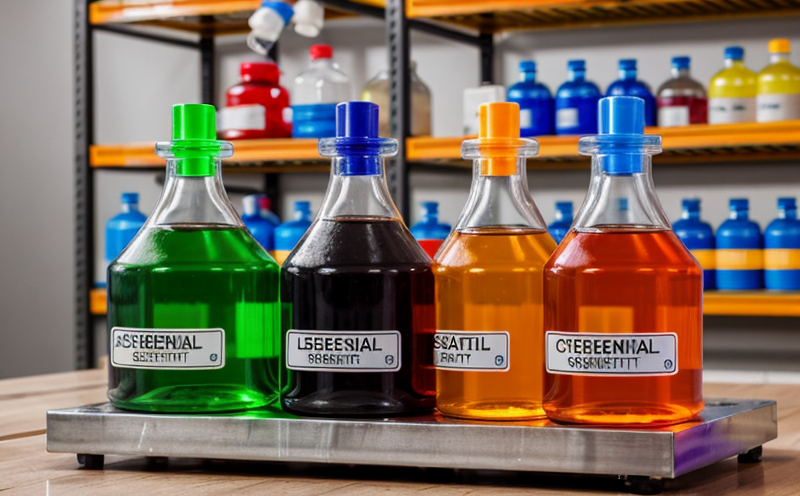Bisphenol A (BPA) Testing in Plastics
The presence of Bisphenol A (BPA) in plastics has raised significant concern due to its potential health risks, especially when it comes into contact with food and beverages. This test is crucial for ensuring the safety of consumer products that come into contact with human skin or are used in food packaging.
Bisphenol A is a chemical compound widely used as a component of polycarbonate plastics and epoxy resins. It has been extensively studied, and although regulatory bodies like the FDA (Food and Drug Administration) have stated that BPA is safe at low levels for use in food containers and packaging, concerns remain over its potential to leach into food or drink, particularly from baby bottles, water bottles, and other household items.
Our laboratory offers comprehensive testing services to help manufacturers and suppliers verify the safety of their products by ensuring that they are free from harmful substances like BPA. We utilize state-of-the-art analytical techniques such as High-Performance Liquid Chromatography (HPLC) with Fluorescence Detection, which is highly sensitive and specific for detecting minute quantities of BPA in various plastic matrices.
During the testing process, our experts follow stringent protocols to prepare samples accurately. This includes thorough extraction methods that ensure all relevant compounds are captured before analysis. Once extracted, the samples undergo rigorous analysis ensuring precise quantification of BPA levels. Compliance with international standards such as ISO 8063:2014 ensures reliability and accuracy of results.
Our approach not only helps in meeting regulatory requirements but also contributes significantly towards enhancing consumer confidence by providing transparent information about product safety. By offering reliable testing services, we support businesses across different sectors including healthcare, food & beverage, and packaging industries to maintain high standards of quality control.
The importance of BPA testing cannot be overstated; it plays a vital role in protecting public health while promoting responsible manufacturing practices. As technology advances, so too do our methods for detecting trace amounts of this compound within polymers used in everyday items such as toys, medical devices, and household goods. With ongoing research into safer alternatives to BPA, staying ahead of these developments is essential for any company involved in producing plastic products.
Quality and Reliability Assurance
At our laboratory, we are committed to delivering accurate and reliable results every time. To ensure this, we adhere strictly to internationally recognized guidelines and best practices throughout the entire testing process. Our team comprises highly skilled professionals who have extensive experience in conducting BPA tests on various types of plastic materials.
We employ advanced instrumentation and equipment that allow us to achieve high precision and accuracy levels during analysis. The use of validated methods ensures consistent results across multiple batches or samples, thereby enhancing trustworthiness among clients operating within strict compliance frameworks.
Quality assurance extends beyond just technical proficiency; it also involves continuous improvement efforts aimed at staying abreast with emerging trends in chemical safety testing. By leveraging cutting-edge technology and maintaining robust quality management systems, we strive to provide unparalleled service that meets or exceeds customer expectations.
International Acceptance and Recognition
The global nature of trade necessitates uniformity in standards for product safety assessments, including those related to BPA content. Our laboratory is accredited by leading certification bodies such as ISO/IEC 17025:2017, which guarantees adherence to the highest quality assurance practices.
Compliance with international standards like these provides assurance that our testing methodologies are consistent and reliable across borders. This recognition enhances trust between suppliers and buyers worldwide who rely on accurate data derived from such rigorous testing procedures. It also facilitates smoother cross-border transactions by ensuring mutual acceptance of results obtained in different countries.
Environmental and Sustainability Contributions
In addition to addressing immediate concerns regarding human health, minimizing exposure to harmful chemicals like BPA contributes positively towards environmental sustainability goals. By promoting the use of safer alternatives in manufacturing processes, we help reduce pollution risks associated with improper disposal methods.
The shift away from conventional plastics containing BPA has led to increased interest in biodegradable or recyclable materials that pose fewer ecological impacts over their lifecycle. Our services play an integral part in driving this transition by providing valuable insights into the environmental footprint of various plastic types.





